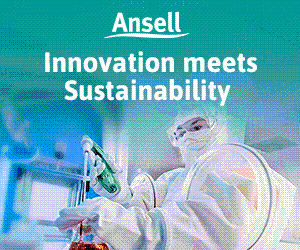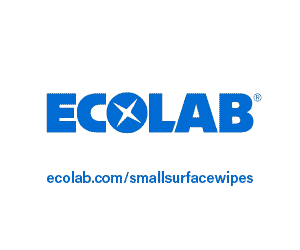In the digital era, cleanroom firms are starting to realise that futuristic engineering technologies can provide major benefits to both the contractor and the client. Many are asking if it is worth the investment.
We're doing the largest biotech projects in the US
Speaking to AdvanceTEC’s Managing Partner, Bryan Phelan, reveals a lot about the company’s attitude to the current cleanroom market, and what these technologies can really do to help them and the customers during the design and build process.
Who are the clients?
Phelan’s charge is a cleanroom design-build specialty contractor that serves the North American market with turnkey design build projects, as well as highly sophisticated prefabricated, modularised delivery of projects.
Based in Virginia, the 25-year-old company does not pursue projects outside of the US, but is hugely prolific within the continent.
I would tell you and anybody else willing to listen, that we think that those that are in the pod business have a flawed business model
"We're doing the largest biotech projects in the US," Phelan shares. However for obvious reasons, he does not reveal the exact names. He does however share that these projects run the gambit of CDMOs and pharmaceutical experts, for gene and cell therapy products, small and large molecules, as well as CAR-T therapies. A particular focus in these departments is on the GLP1 inhibitor space. GLP1 is a hormone that is released by the gut after eating. Inhibitors for this gene can help with issues related to type 2 diabetes and obesity.
"We're doing business with everybody that's in the GLP one inhibitor space,” Phelan says. “Obviously there's massive amounts of capital investment taking place globally in those segments."
Lots of capital means lots of spending on projects, but with that, the expectations of a top-notch project delivery. But what does that mean?
Live from the innovation centre
AdvanceTEC and Phelan’s answer to the need for top-notch project deliveries is using the latest technologies.
The company has been investing in Revit for the last 13 years. This includes BIM (Building Information Modelling) VDC (Virtual Design and Construction), which provides 3D and 4D modelling of the build and cleanroom. This allows the team to rapidly provide details on the air change rates per hour, the sizing of the air handlers, as well as the sizing of the electrical and mechanical loads. "All [of these are] live within our model updates," Phelan says.
Teamwork, integrity, and trustworthiness. That’s not a trend
The Managing Partner explains that the other great benefit of utilising these technologies is that they translate to live cost updates. The “estimate tracking platform” as he calls it, allows the team to give on the fly updates to costing, which allows clients to make informed decisions.
Cleanrooms in the matrix
Beyond the decade-long investment in building modelling, Phelan explains that about three years ago the company began investing in virtual reality (VR) capabilities. He says that this allows them to do VR walkthroughs of the facility for users.
"So think of it in a biotech suite, we're able to take the users into each of the suites, have them put on the goggles and be able to see how the suites are laid out."
Beyond the decade-long investment in building modelling, Phelan explains that about three years ago the company began investing in virtual reality (VR) capabilities
It allows them to ask themselves and AdvanceTEC important questions. Is it going to work for their people? How are they going to maintain their equipment?
How they're going to run their process and production through those spaces early in the design process. Asking these questions at this stage allows modifications to be made at a cheaper and logistically easier stage. This makes both a happy contractor and a happy customer.
Teamwork makes the dream work
With all of these benefits, AdvanceTEC has made sure to put investment into these teams to support this technology.
"We have invested in our in-house, field technology team, as we call it,” Phelan explains. “That field technology team is the one that goes out and digitally scans the building that is being built that we're going to be beginning our construction on, so we can identify if there are any elements in the field that are different from what the model is expecting."
Investment was needed in equipment as well as team members
This allows Phelan and the team to address issues before they are actually mobilised in the field. Which, once again, improves the reliability of cost and time schedules.
Investment was needed in equipment as well as team members. As such this team uses the latest Trimble, Hilti, and Matterport equipment to carry out these surveys.
"We're utilising all these tools to avoid schedule impacts, to avoid cost impacts, avoid delays for our customers, and then once we are in construction, we're also now leveraging Open Space, which allows us to utilise that technology to record real-time progress in the field, share those files with our global clients so they can see what's actually being built in the field," Phelan says.
Modularisation gone too far?
Modular and prefabrication are another big aspect of Phelan and AdvanceTEC’s plan to deliver projects to these major clients with a top-notch service.
Modular and prefabrication are two modern methods of construction that mean more work can be done at the contractor’s site to the benefit of all.
Phelan objects to the future of cleanrooms as "PODs" however. “Our vision for offsite prefabrication, modularisation is not "POD"," he says. "I would tell you and anybody else willing to listen, that we think that those that are in the pod business have a flawed business model. Many companies that have gone bankrupt over the last decade and a half in that business prove that that business model is flawed."
At its heart, the company is really a project-centred endeavour
He goes on to explain that this takes the concept of productisation too far. "The best examples would be G-CON, Germfree, and Pharmadule,” he says. “I mean, those are, those are all examples of people having to shoehorn their facilities into a cookie cutter type prefabrication. And that's, that's not what our customers are looking for."
He goes on to elaborate on this, saying that in the case of small labs in difficult locations, or in areas lacking skills, there is a place for this technology, but "it's not what the broader scale of the industry is looking for."
Phelan thinks this is because biotech companies around the world are very risk averse. He believes the market is decidedly tilting towards a capabilities-based business model, again, not a commodity-based business model.
At its heart, the company is really a project-centred endeavour, not a product-centred one. This means that Phelan and his team don’t rely on any one supplier or product for success. "We oftentimes are integrating materials from multiple different companies to create a monolithic or homogeneous, you know, project for our clients that give them the best performance at the best price point. And I think, and, well, I know that that is a very unique approach to projects," he says.
The future
Lots of software and engineering technology combined with a project-centered approach is where the AdvanceTEC team and Phelan are as it stands. So what is his vision for the future of the company and what trends are they capitalising on?
Speaking about the future, Phelan says for him it looks like further integration. Further integration of off site prefabrication, and further modularised solutions for clients to take craft hours off of job sites to reduce risk for customer. This includes integrating more mechanical, more process, more electrical, those types of services into the company’s prefabricated delivery process.
We have invested in our in-house, field technology team, as we call it
"That's what the future of the market looks like," he says.
But above and beyond all of the technology and all of the modern methods, Phelan believes what truly never goes out of style is teamwork, integrity, and trustworthiness. "That's not a trend," he says. “That's something that people want and we take a lot of pride in being that type of company for our clients”





